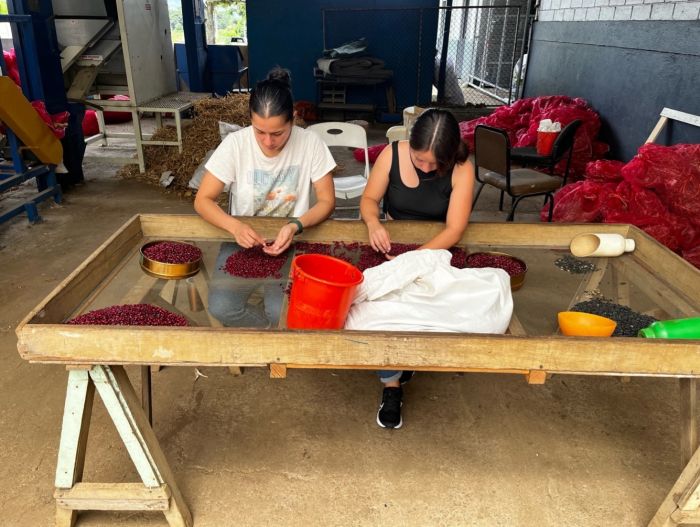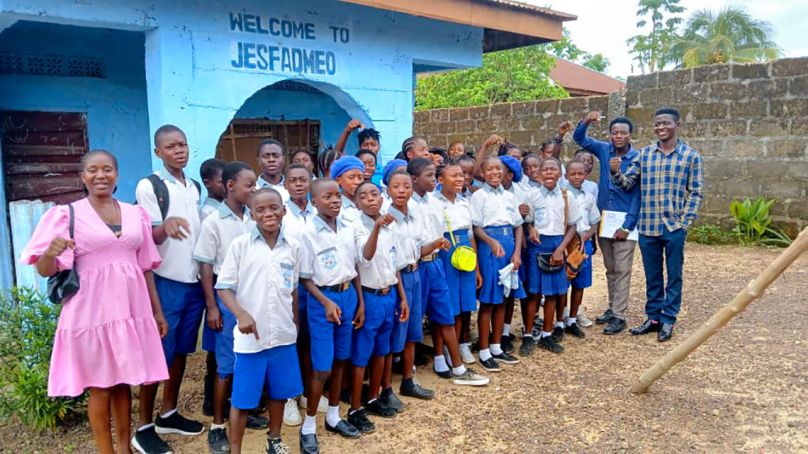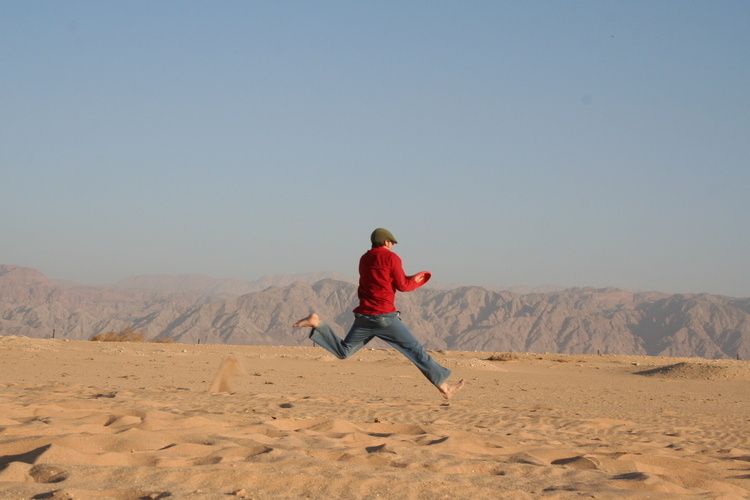Institute for African Development
N’Dri Thérèse Assié-Lumumba
Professor, African and African Diaspora
Additional Information
Program
Role
- Faculty
- IAD Core Faculty
- IAD Advisory Council
Contact
Email: n.assie-lumumba@cornell.edu
Phone: 607-255-7839
Why are My Food Prices So High?

Chris Barrett, IAD/SEAP
In this episode of Research Matters, economist Chris Barrett digs into why food prices remain so stubbornly high — from climate shocks and geopolitical conflict to supply chain bottlenecks and fragile global markets that amplify volatility.
Additional Information
Travel Grants Send Grad Students Abroad

Apply by March 6 for Summer 2026
Eighty-three graduate students traveled internationally for fieldwork last summer with Einaudi Center support.
Additional Information
Cultivating Climate Resilience in Sierra Leone

Mandela Fellow's Project Grows Future Climate Leaders
The idea for a youth climate action project originated in 2023 during the Einaudi-led Mandela Washington Fellowship at Cornell.
Additional Information
Writing a Winning Fulbright Proposal

January 23, 2027
4:30 pm
Uris Hall, G08
Primarily for undergraduates, this session offers guidance on how to write a winning proposal for the Fulbright U.S. Student Program. The session will be led by two Fulbright advisors with years of experience. Applying for a Fulbright? We encourage you to attend!
Additional Information
Program
Einaudi Center for International Studies
Reppy Institute for Peace and Conflict Studies
East Asia Program
Southeast Asia Program
Latin American and Caribbean Studies
Institute for African Development
Institute for European Studies
South Asia Program
Information Session: Fulbright U.S. Student Program

May 18, 2026
5:00 pm
The Fulbright U.S. Student Program supports U.S. citizens to study, conduct research in any field, or teach English in more than 150 countries. The program is open to graduate students, recent graduates, and young professionals. Undergraduate students who wish to begin the program immediately after graduation are encouraged to start the process in their junior year. Recent graduates are welcome to apply through Cornell.
The Fulbright program at Cornell is administered by the Mario Einaudi Center for International studies. Applicants are supported through all stages of the application and are encouraged to start early by contacting fulbright@einaudi.cornell.edu.
Register for the virtual session.
Can’t attend? Contact fulbright@einaudi.cornell.edu.
Additional Information
Program
Einaudi Center for International Studies
Reppy Institute for Peace and Conflict Studies
East Asia Program
Southeast Asia Program
Latin American and Caribbean Studies
Institute for African Development
Institute for European Studies
South Asia Program
Migrations Program
Information Session: Fulbright U.S. Student Program

April 13, 2026
4:45 pm
The Fulbright U.S. Student Program supports U.S. citizens to study, conduct research in any field, or teach English in more than 150 countries. The program is open to graduate students, recent graduates, and young professionals. Undergraduate students who wish to begin the program immediately after graduation are encouraged to start the process in their junior year. Recent graduates are welcome to apply through Cornell.
The Fulbright program at Cornell is administered by the Mario Einaudi Center for International studies. Applicants are supported through all stages of the application and are encouraged to start early by contacting fulbright@einaudi.cornell.edu.
Register for the virtual session.
Can’t attend? Contact fulbright@einaudi.cornell.edu.
Additional Information
Program
Einaudi Center for International Studies
Reppy Institute for Peace and Conflict Studies
East Asia Program
Southeast Asia Program
Latin American and Caribbean Studies
Institute for African Development
Institute for European Studies
South Asia Program
Migrations Program
Information Session: Fulbright U.S. Student Program

March 18, 2026
4:45 pm
The Fulbright U.S. Student Program supports U.S. citizens to study, conduct research in any field, or teach English in more than 150 countries. The program is open to graduate students, recent graduates, and young professionals. Undergraduate students who wish to begin the program immediately after graduation are encouraged to start the process in their junior year. Recent graduates are welcome to apply through Cornell.
The Fulbright program at Cornell is administered by the Mario Einaudi Center for International studies. Applicants are supported through all stages of the application and are encouraged to start early by contacting fulbright@einaudi.cornell.edu.
Register for the virtual session.
Can’t attend? Contact fulbright@einaudi.cornell.edu.
Additional Information
Program
Einaudi Center for International Studies
Reppy Institute for Peace and Conflict Studies
East Asia Program
Southeast Asia Program
Latin American and Caribbean Studies
Institute for African Development
Institute for European Studies
South Asia Program
Migrations Program
World in Focus: Immigration Enforcement as Political Punishment

February 10, 2026
4:00 pm
Uris Hall, G08
Join Einaudi Center experts for World in Focus Talks on global events in the news and on your mind. Our faculty's research and policy insights put the world in focus.
This year we’re hosting informal campus discussions on many Tuesday afternoons. This week’s topic:
In the United States and around the world, strict immigration enforcement and violence are being wielded as political tools. Recent U.S. actions include surveillance of communities, indiscriminate detainment, and violence against protestors. Despite being framed as necessary for the safety of citizens, these tactics are rooted in histories of slavery, the prison industrial complex, and xenophobia.
Does this type of enforcement infringe on rights? How can we understand current events through the lens of global and historical contexts? Do present-day immigration policies make communities safer?
***
Featured Faculty
Shannon Gleeson (Migrations) | Industrial and Labor RelationsTristan Ivory (EAP, IAD) | International and Comparative LaborJaclyn Kelley-Widmer | LawNatasha Raheja (SAP) | AnthropologyIan Kysel | Law
***
Conversations Matter at Einaudi
This conversation is hosted by the Mario Einaudi Center for International Studies and its regional and thematic programs. Find out what's in store for students at Einaudi!
Additional Information
Program
Einaudi Center for International Studies
Reppy Institute for Peace and Conflict Studies
East Asia Program
Southeast Asia Program
Latin American and Caribbean Studies
Institute for African Development
Institute for European Studies
South Asia Program
Migrations Program
Southwest Asia and North Africa Program

